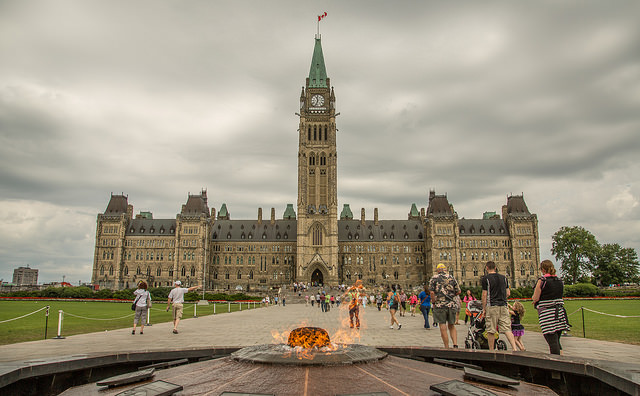Last Wednesday, I was glued to CBC radio’s coverage of the Ottawa shootings while trying — and failing — to focus on my upcoming class. At 12:54 p.m., as a CBC reporter relayed the shocking news shots may have been fired inside the Rideau Mall — meaning there might be “more than one shooter” — a Facebook post popped up on my screen.
It was from Spencer Osberg, one of my graduate students. Spencer had worked as a journalist in Lebanon. He forwarded a list of cautions for following dramatic breaking news from a website called “On The Media.”
No. 4 on the list: There’s almost never a second shooter.
There wasn’t.
The next morning, I shadowed Twitter as police shuttered much of downtown Halifax while they searched for a man reported seen carrying a rifle.
Tweeted independent local journalist Tim Bousquet: “Remember how after Moncton shooting there were scads of false reports of shooters in Halifax? Here we go again.”
A few minutes later, police arrested a man who’d left a sawed-off shotgun on a city bus. “My bad,” Bousquet tweeted.
Maybe. Maybe not. It seems the man arrested and the man seen with the rifle were different.
We still — too often — don’t know enough about everything to know anything about anything for sure.
That’s the journalist’s dilemma. Covering breaking news in The Age of Instant is fraught: information is fragmentary, contradictory, confusing, from multiple sources of varying reliability.
At the same time, audiences want to know what’s happening now.
By most accounts, the CBC got it right. The American magazine Mother Jones described CBC television coverage as a “master class in calm, credible breaking-news reporting.” That was true of radio as well. Even the ultimately false reports about shots being fired at the mall and a second shooter were carefully couched and framed.
But our next challenge will be even tougher: putting what happened in Ottawa in context. This shooter appears not to have been an ideologue-automaton but a troubled, addicted, conflicted loner who twisted religion for his own purposes. Do we really need to spend more on countering terrorism, or more on improving mental health? More on security or more on public education?
We can’t give in to the everything-is-changed-forever-and-we-must-change-everything-forever hysteria. We need to remain calm and Canadian.
This article first appeared in Stephen Kimber’s Halifax Metro column.
Photo: Tony Webster/flickr




